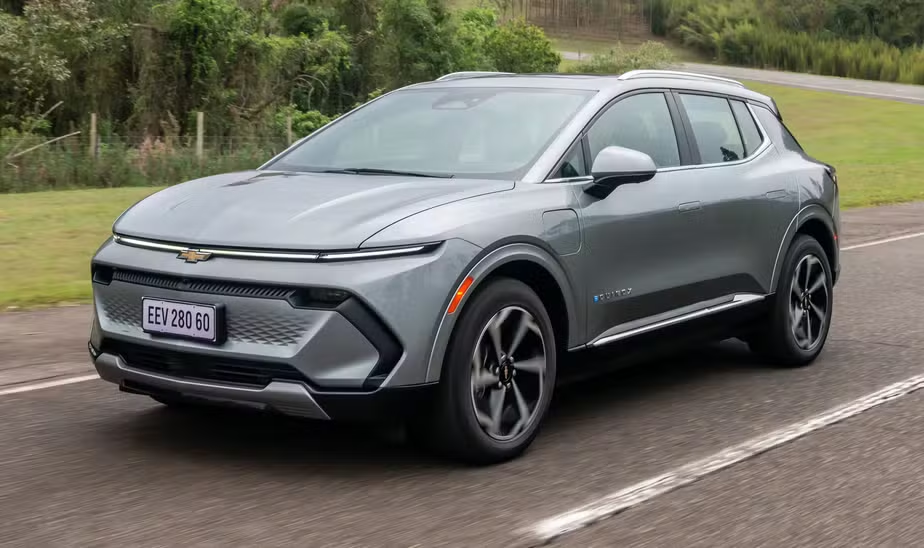In 2024, the automotive landscape is more diverse than ever, with electric vehicles (EVs), hybrids, and traditional gas cars all vying for consumer attention. According to a recent report from Bloomberg Green, EV sales are projected to account for 65% of global new car sales by 2030. However, the question remains: which type is the most cost-effective choice today? In this article, we’ll dive into the financial implications of owning an EV, hybrid, or gas vehicle, helping you make an informed decision based on your budget and lifestyle needs.
The Cost of Ownership: A Comparative Analysis
Upfront Costs and Incentives
When considering the cost-effectiveness of a vehicle, the initial purchase price is often the first factor to evaluate.
- Electric Vehicles (EVs): While EVs typically have a higher sticker price than their gas counterparts, significant government incentives can offset these costs. For instance, the U.S. federal tax credit for electric vehicles can reduce the purchase price by up to $7,500, though this varies by model and manufacturer. In 2024, manufacturers like Tesla and Rivian continue to lead the market with competitive pricing and innovative financing options.
-
Hybrids: These vehicles offer a middle ground with moderate upfront costs. Hybrid cars often qualify for smaller incentives compared to full EVs. The Toyota Prius, a popular hybrid, continues to be a cost-effective choice for those seeking fuel efficiency without the full commitment to electric.
-
Gasoline Cars: Generally, gas cars have the lowest initial purchase price, making them attractive to budget-conscious buyers. However, they lack the government incentives that often accompany the purchase of EVs and hybrids.
Fuel and Energy Costs
Fuel efficiency and energy consumption are critical when evaluating long-term costs.
- EVs: Operating an EV is significantly cheaper in the long run. According to the International Energy Agency (IEA), charging an EV costs about 50% less than fueling a gasoline car, depending on local electricity rates. With the expansion of renewable energy sources, charging costs are expected to decrease further.
-
Hybrids: These vehicles offer a compromise between gas and electric, often achieving impressive mileage with their dual power sources. The Hyundai Ioniq Hybrid, for example, boasts over 55 miles per gallon, making it an economical choice for daily commuters.
-
Gasoline Cars: Despite advancements in fuel efficiency, gas prices remain volatile. The average American spends over $1,500 annually on gasoline, according to the U.S. Energy Information Administration.
Maintenance and Repairs
Maintenance costs can vary significantly between vehicle types.
- EVs: With fewer moving parts, EVs require less maintenance than traditional vehicles. Reports from InsideEVs highlight that EV owners spend about 30% less on maintenance over the vehicle’s lifespan compared to gas car owners. Battery replacements, however, can be costly if not covered by warranty.
-
Hybrids: While hybrids benefit from reduced wear on the engine, their dual systems can lead to more complex and potentially more expensive repairs. Regular maintenance remains crucial to avoid costly fixes.
-
Gasoline Cars: These vehicles often incur higher maintenance costs due to engine complexity and frequent oil changes. However, they typically have more established service networks.
Depreciation and Resale Value
Resale value is a crucial factor in the total cost of ownership.
- EVs: Historically, EVs have depreciated faster than traditional cars, but this trend is shifting. As battery technology improves and charging infrastructure expands, models like the Tesla Model 3 retain value better than many gas cars.
-
Hybrids: These vehicles generally have a stable resale value, with models like the Honda Insight maintaining popularity in the used car market.
-
Gasoline Cars: While initially lower in cost, gas vehicles can depreciate rapidly, especially as global trends push towards sustainable mobility.
Practical Tips for Choosing the Right Vehicle
Choosing the right vehicle depends on your lifestyle and financial goals. Here are some practical tips:
- Consider Your Driving Habits: If you have a short daily commute, an EV might be the most cost-effective option. For longer distances, a hybrid could provide the best fuel economy.
-
Evaluate Charging Infrastructure: Access to reliable charging stations is crucial for EV owners. Check local availability and consider home charging solutions.
-
Research Incentives: Stay updated on government incentives that can significantly reduce the purchase price of EVs and hybrids.
-
Calculate Total Cost of Ownership: Include purchase price, incentives, fuel/energy costs, maintenance, and depreciation when assessing long-term affordability.
-
Test Drive Different Models: Experience the driving dynamics and comfort levels of each vehicle type before making a decision.
Conclusion
In 2024, the choice between EVs, hybrids, and gas vehicles is more nuanced than ever. Each option offers unique benefits and challenges. Electric vehicles are increasingly cost-effective, especially with the backing of government incentives and decreasing energy costs. Hybrids offer a balanced approach, while gas cars remain an accessible choice for those prioritizing low upfront costs. Ultimately, the best choice depends on your personal needs, driving habits, and financial situation.
As we look to the future, the trend towards electrification shows no signs of slowing down. With advancements in battery technology and expanded charging infrastructure, EVs are poised to become the most cost-effective choice for a growing number of drivers. Which path will you choose as the automotive world continues to evolve? Share your thoughts and join the conversation about the future of transportation.

